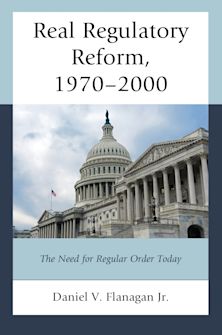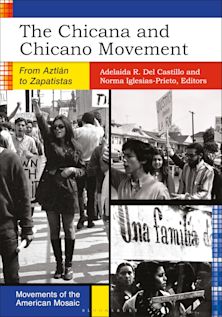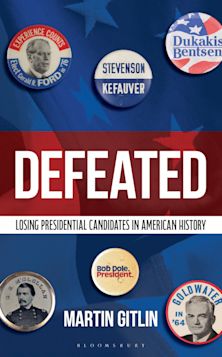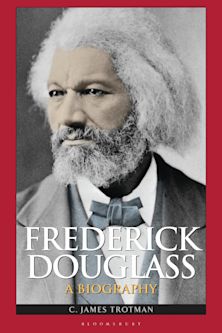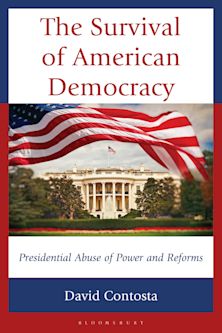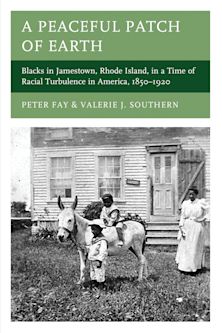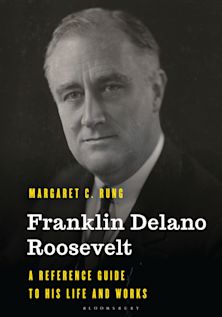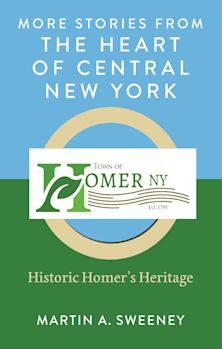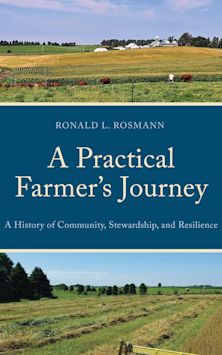- Home
- ACADEMIC
- History
- United States History
- The Human Tradition in Antebellum America
The Human Tradition in Antebellum America
Michael A. Morrison (Anthology Editor) , Stephen R. Grossbart (Contributor) , Ruth Alden Doan (Contributor) , Craig Thompson Friend (Contributor) , Gary J. Kornblith (Contributor) , Andrew R. L. Cayton (Contributor) , Gene A. Smith (Contributor) , Samuel J. Watson (Contributor) , Mary Young (Contributor) , Donna L. Akers (Contributor) , George R. Price (Contributor) , Daniel A. Cohen (Contributor) , Anya Jabour (Contributor) , John F. Marszalek (Contributor) , Daniel Feller (Contributor) , John Mayfield (Contributor)
- Textbook
The Human Tradition in Antebellum America
Michael A. Morrison (Anthology Editor) , Stephen R. Grossbart (Contributor) , Ruth Alden Doan (Contributor) , Craig Thompson Friend (Contributor) , Gary J. Kornblith (Contributor) , Andrew R. L. Cayton (Contributor) , Gene A. Smith (Contributor) , Samuel J. Watson (Contributor) , Mary Young (Contributor) , Donna L. Akers (Contributor) , George R. Price (Contributor) , Daniel A. Cohen (Contributor) , Anya Jabour (Contributor) , John F. Marszalek (Contributor) , Daniel Feller (Contributor) , John Mayfield (Contributor)
- Textbook
Buy from Bloomsbury eTextBooks
You are now leaving the Bloomsbury Publishing website. Your eBook purchase will be with our partner https://www.vitalsource.com.
Your credit card statement will show this purchase originating from VitalSource Technologies. They will also provide any technical assistance you might require.
You must sign in to add this item to your wishlist. Please sign in or create an account
Description
This new book consists of mini-biographies of 15 Americans who lived during the Antebellum period in American history. Part of The Human Tradition in America series, the anthology paints vivid portraits of the lives of lesser-known Americans. Raising new questions from fresh perspectives, this volume contributes to a broader understanding of the dynamic forces that shaped the political, economic, social, and institutional changes that characterized the antebellum period. Moving beyond the older, outdated historical narratives of political institutions and the great men who shaped them, these biographies offer revealing insights on gender roles and relations, working-class experiences, race, and local economic change and its effect on society and politics. The voices of these ordinary individuals-African Americans, women, ethnic groups, and workers-have until recently often been silent in history texts. At the same time, these biographies also reveal the major themes that were part of the history of the early republic and antebellum era, including the politics of the Jacksonian era, the democratization of politics and society, party formation, market revolution, territorial expansion, the removal of Indians from their territory, religious freedom, and slavery. Accessible and fascinating, these biographies present a vivid picture of the richly varied character of American life in the first half of the nineteenth century. This book is ideal for courses on the Early National period, U.S. history survey, and American social and cultural history.
Table of Contents
Chapter 2 Abraham Bishop: Teacher, Lawyer, Orator, and Politician
Chapter 3 John Wesley Young: Identity and Community among 'the People Called Methodist'
Chapter 4 Trotter & Sons: Merchants in the Early West
Chapter 5 Hiram Hill: House Carpenter, Lumber Dealer, Self-Made Man
Chapter 6 Senator John Smith: The Rise and Fall of a Frontier Entrepreneur
Chapter 7 ArsÈne LacarriÈre Latour: Immigrant, Patriot-Historian, and Foreign Agent
Chapter 8 Thomas Sidney Jesup: Soldier, Bureaucrat, Gentleman Democrat
Chapter 9 John Ross: Cherokee Chief and Defender of the Nation
Chapter 10 Peter P. Pitchlynn: Race and Identity in Nineteenth-Century America
Chapter 11 Hosea Easton: Forgotten Abolitionist 'Giant'
Chapter 12 Laura Wirt Randall: A Woman's Life, 1803-1833
Chapter 13 Rebecca Reed: Anti-Catholic Agitator
Chapter 14 Margaret Eaton: The Politics of Gender in Jacksonian America
Chapter 15 Benjamin Tappan: Democrat, Scientist, Iconoclast
Chapter 16 George Washington Harris: The Fool from the Hills
Product details
| Published | 01 Aug 2000 |
|---|---|
| Format | Ebook (Epub & Mobi) |
| Edition | 1st |
| Extent | 251 |
| ISBN | 9781461704485 |
| Imprint | Rowman & Littlefield Publishers |
| Series | The Human Tradition in America |
| Publisher | Bloomsbury Publishing |
About the contributors
Reviews
-
Brings the world of antebellum America alive.
Choice Reviews
-
A superb anthology, brimming with talent and insight. Professor Morrison has assembled an outstanding collection which deepens our understanding of the early republic. The Human Tradition in Antebellum America will attract a wide audience.
Laura McCall, Metropolitan State College of Denver
-
By giving voice to those Americans who have seldom been heard, this book reveals in unusual depth the democratization and expansion of American life in the early republic. Its focus on the rich diversity of the age reminds us all of the wide range of human experience in antebellum America at the same time as it strikingly portrays the fundamental contradictions between the promise and the reality of this crucial, formative period in U.S. history.
Stephen Maizlish, University of Texas at Arlington
-
This collection of essays introduces three white women and twelve white, African American, Native American, or mixed-race men. In accessible prose, each author portrays one or more of these individuals who, in their private lives and public actions, represent life in the freewheeling world of their time. Each illuminates some of the tensions and possibilities of life in the United States in the first half of the nineteenth century.
Peter Wallenstein, Virginia Polytechnic Institute and State University
-
These interesting and well-written essays on some of the lesser-known figures of the antebellum period provide unique and valuable insights into American society. Teachers as well as students will find them useful in developing their understanding and appreciation of the past.
Kenneth R. Steven, Texas Christian University













